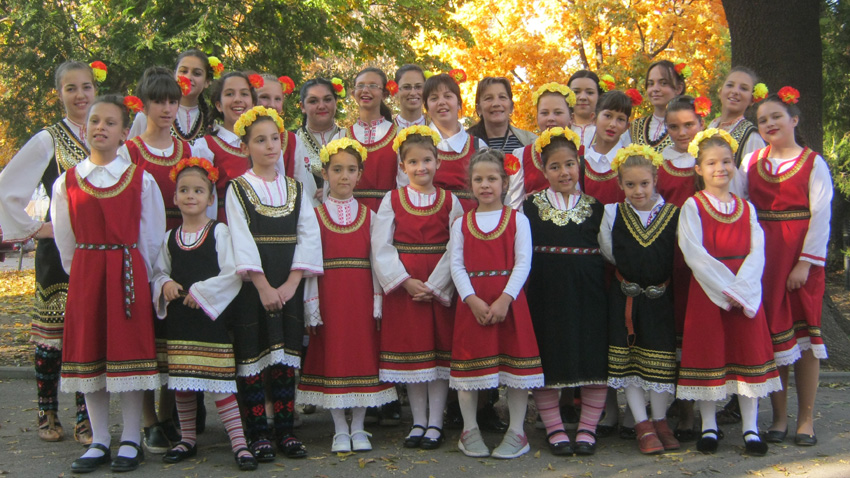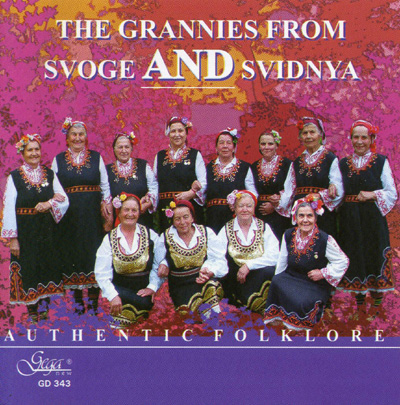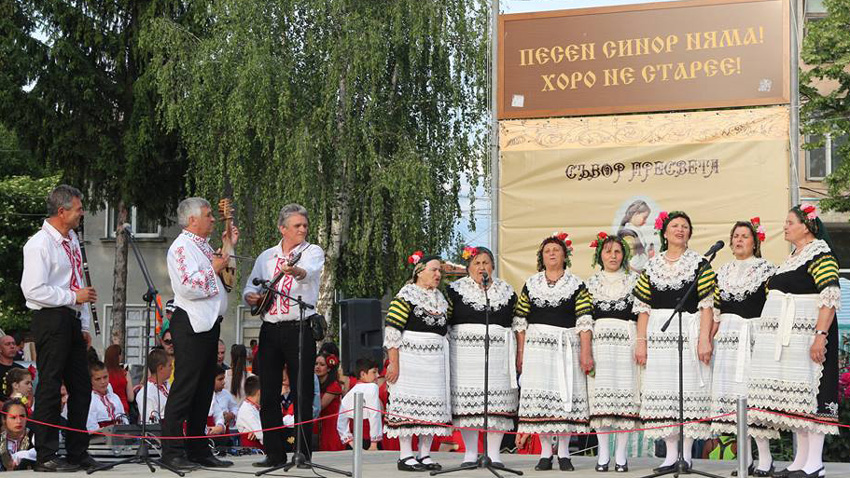In current dynamic times when futile speech, debates and fake information streams are common, the ancient folk song is a sort of salvation from the noise and vanity that surround us. It is a peculiar island of purity and wisdom that many look for. For singer Snezhana Borisova from the Shoppe region, this journey towards the ancient song is a constant mission. Despite her professional responsibilities as a member of "Philip Koutev" National Folklore Ensemble, where she performs complicated choral scores by different composers, after work she often heads to the villages near Sofia with a sound recorder in hand, in order to hear forgotten melodies, to talk to elderly people; learn from their wisdom and absorb authentic styles of singing.
Snezhana is known for her bold experiments in electronic music along with the “Transformation” band, as well as with the disco rhythms of the Bolyari Orchestra... She also recorded music for the films St. Paul, Julius Caesar, Lourdes and others and has participated in dance shows by Neshka Robeva. Despite the constant search for new paths, she steadily returns to the roots of the authentic Shoppe song. Over the past 15 years, she has been leading singing groups of women and children, making the young acquainted with Bulgarian heritage and local folk culture. Recognizing the importance of recording, she has promoted the production of albums of bands she works with. The first CD is called "Leteli mi sa, leteli" and includes 40 original songs from her native village of Lozen near Sofia. So far she has released seven albums.

Here is what Snezhana Borissova told us about her long experience as leader of folk bands:
 “The authentic Shoppe song has accompanied me throughout my life. Unfortunately, many songs are forgotten as elderly people pass away and this has made me work to preserve these songs for future generations. When my grandmother passed away she left this world together with the songs I could not record. I had the lyrics, but I could not restore the melodies. And these songs are irretrievably lost now. When I started managing choirs, my goal was not just to sing local songs, but to find previously unknown ones. I was the head of the group in Svoge for 6-7 years. I invited three singers from the village of Svidnia - Vaska Ilkova, Ivanka Ivanova, Filatka Sokolova, and I released a CD. I helped the band in Vlado Trichkov, also in my native village of Lozen. In the village of Dolni Lozen I have been heading children's folk groups for more than 10 years. My mother is from the village of Vratshesh near Botevgrad, where I also lead a band. I help in the village of Litakovo and I worked for seven years in the town of Zlatitsa... I am to release the 8th CD with songs from the region of Botevgrad that I am going to record together with the band in Vakarel, with whom I have been working for 5 years now.”
“The authentic Shoppe song has accompanied me throughout my life. Unfortunately, many songs are forgotten as elderly people pass away and this has made me work to preserve these songs for future generations. When my grandmother passed away she left this world together with the songs I could not record. I had the lyrics, but I could not restore the melodies. And these songs are irretrievably lost now. When I started managing choirs, my goal was not just to sing local songs, but to find previously unknown ones. I was the head of the group in Svoge for 6-7 years. I invited three singers from the village of Svidnia - Vaska Ilkova, Ivanka Ivanova, Filatka Sokolova, and I released a CD. I helped the band in Vlado Trichkov, also in my native village of Lozen. In the village of Dolni Lozen I have been heading children's folk groups for more than 10 years. My mother is from the village of Vratshesh near Botevgrad, where I also lead a band. I help in the village of Litakovo and I worked for seven years in the town of Zlatitsa... I am to release the 8th CD with songs from the region of Botevgrad that I am going to record together with the band in Vakarel, with whom I have been working for 5 years now.”

Snezhana has released three discs with folklore songs from Srednogorie region- Chelopech, Chavdar, Zlatitsa, Mirkovo, which are on the border between Srednogorie, Shoppe region and Pazardzhik.
“I always keep in mind the peculiarities of style and dialect," she explains. “My job is very interesting, I love it very much. It does not bring me material benefits, but moral satisfaction. I preserve something that belonged to our grandparents but still lives with our children. I was learning songs from my grandmother. In the same way I make children sing together with the grandmothers. These songs are the truth, the pure spring we all drink from. I am trying to systemize everything women remember into cycles and I always tell children about Bulgarian customs. I am glad that customs are preserved in my native village of Lozen and I am happy that I grew up witnessing them. You cannot sing folk songs and have no knowledge of folk rituals. I have participated in many experiments, but the authentic song has always accompanied me. To make an experiment, you need to know the source. If young people want to preserve Bulgarian folklore, they should find old unknown folk songs as there are so many unrecorded ones...”
English: Alexander Markov
Photos: private libraryOn 22 November, the Association of Bulgarian Folk Ensembles Abroad (ABFEA) will present its project, 'Online Catalogue of Bulgarian Horo and Other Dances', in three European cities: Lyon, Munich and Copenhagen. 'Our goal is to preserve Bulgarian..
‘The Bulgarian horo is a kind of magic — an enchanted circle that pulses with the unique energy of our spirit, our traditions and our identity,’ says journalist Milena Milotinova, who recently presented her new documentary The Magic of the Bulgarian..
The Eastern Rhodopes come to life in the heart of Sofia – with authentic flavoуrs, music and craftsmanship . Residents of the Bulgaria capital have a chance to immerse themselves in the atmosphere of Momchilgrad Municipality and its cultural and natural..

+359 2 9336 661
